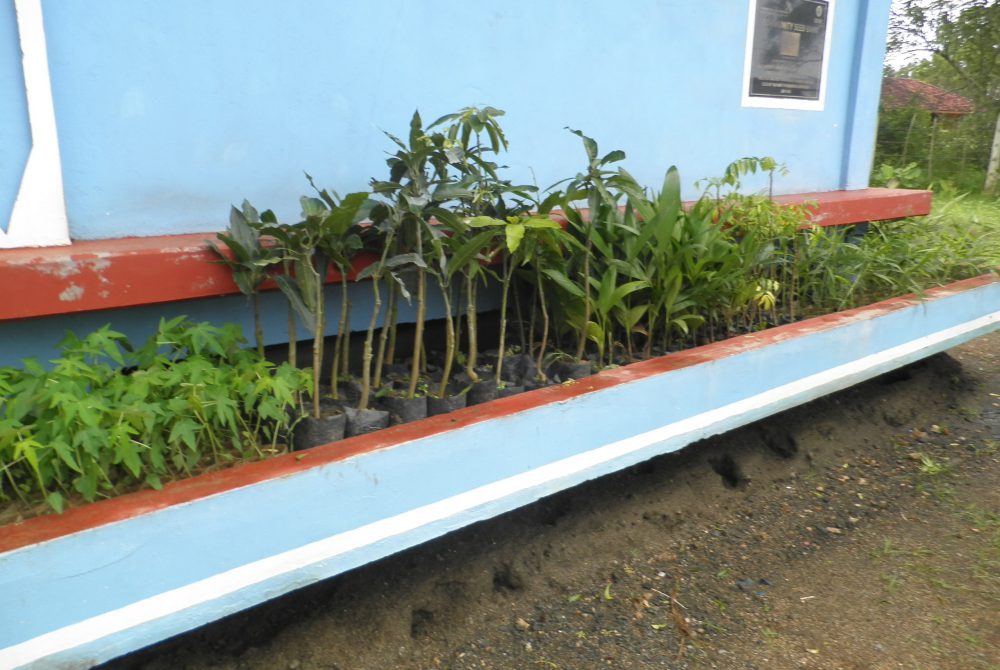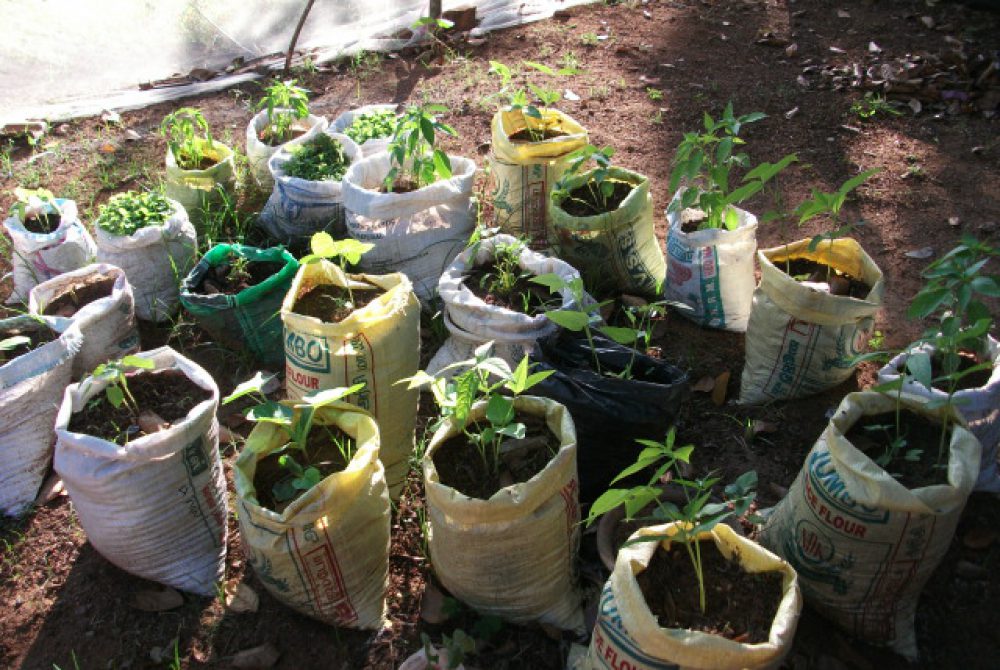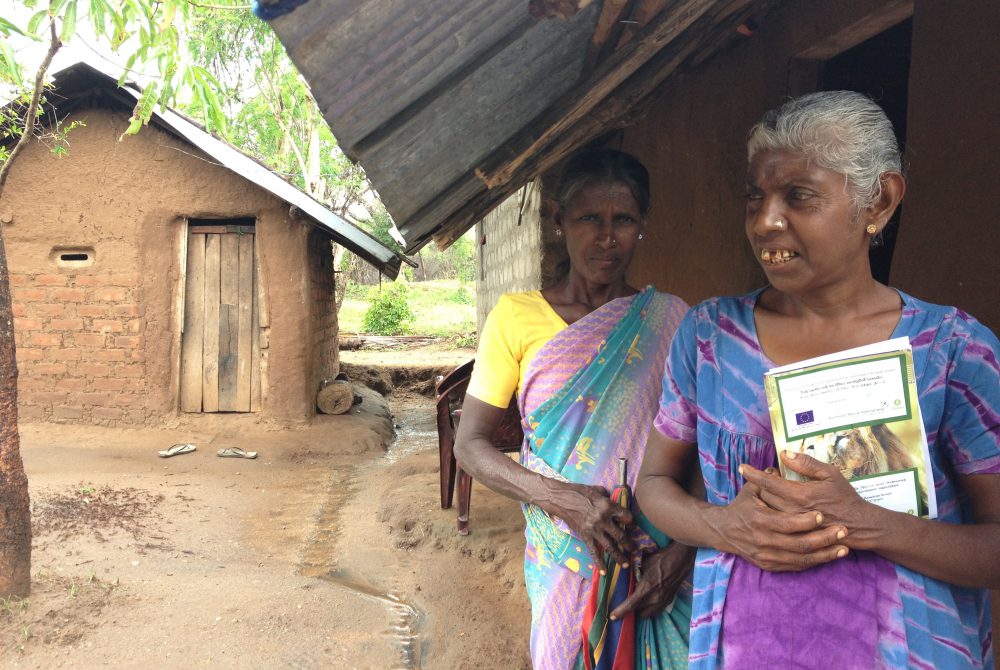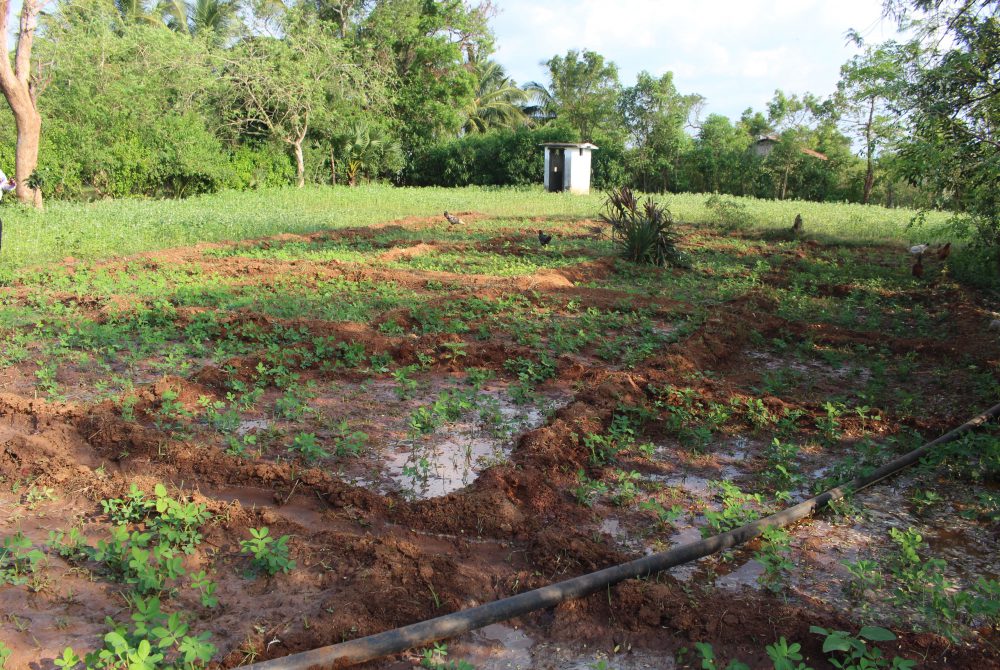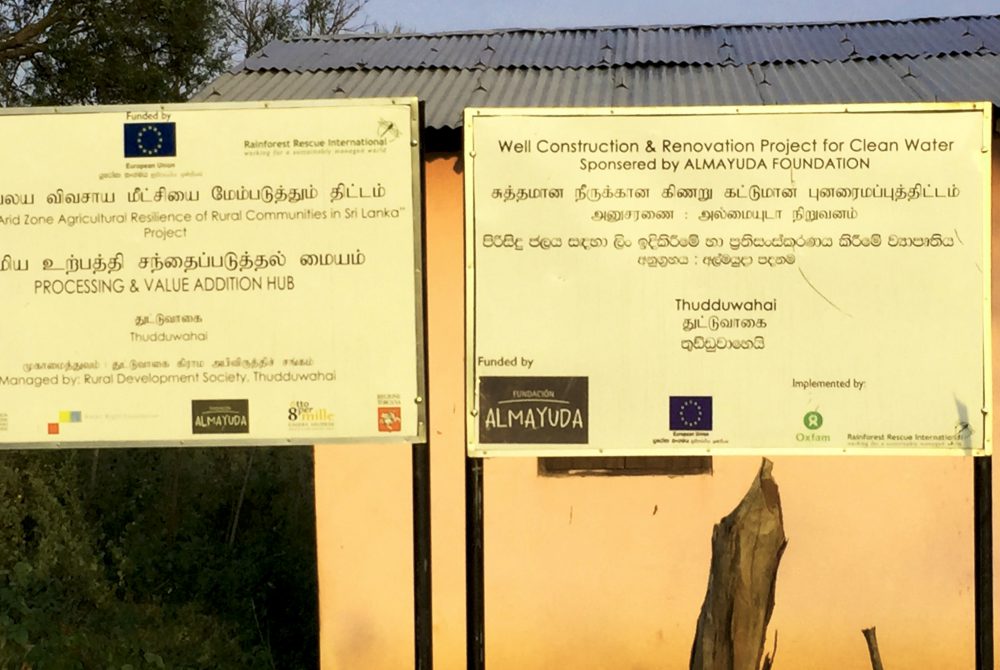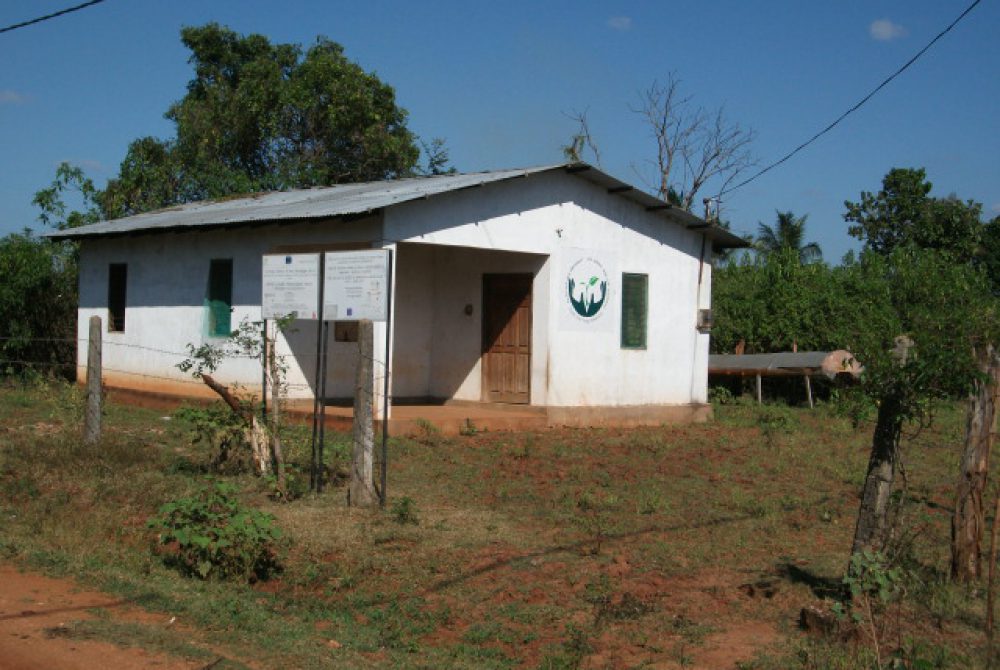The ALMAYUDA FOUNDATION supports Rainforest Rescue International (RRI), an NGO based in Sri Lanka. RRI operates mainly in the northern provinces, which were hard hit by the war and where it plays a pioneering role in environmental protection and in restoring food resources.
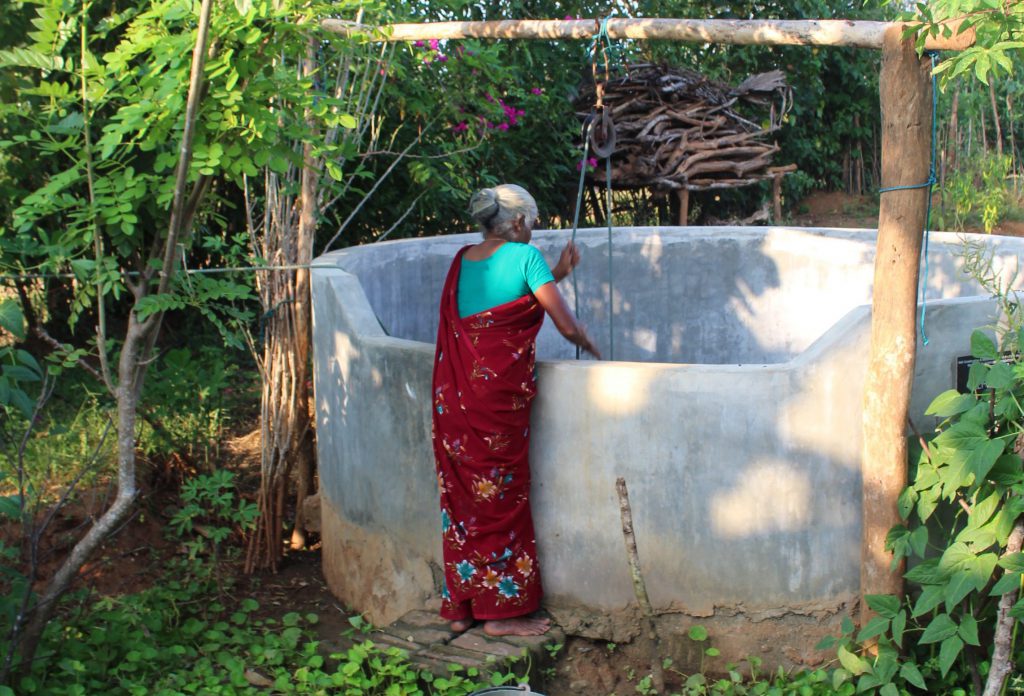
Rainforest Rescue International (RRI) works to safeguard fragile ecosystems and to combat the effects of soil degradation and climate change by means of reforestation and the development of sustainable farming practices.
The solution to each family’s food problems is subsistence farming in their own garden around their main dwelling.
These actions that benefit the environment are directly linked to the assistance that RRI provides to farming communities to help them feed themselves and sell their surplus in order to generate additional income.
Through its offices in Colombo, the ALMAYUDA FOUNDATION contributes to this action led by RRI: since 2012, it has run a programme aimed initially at 100 and then 150 widows with children who have no income in the Vavuniya area.
Gardens and wells
The solution to each family’s food problems is subsistence farming in their own garden around their main dwelling. In the context of Sri Lanka in recent years, however, cultivating a small plot of land that will provide sufficient food for a family, plus enough to sell the occasional surplus, calls for the earlier dynamic and organisation to be recreated. The beneficiaries of the programme must have sufficient seeds at the right time. They have to learn how to make the most of every square metre without recourse to substances such as pesticides and chemical fertilisers. They must determine which plants grow best in association with which other plants, etc.
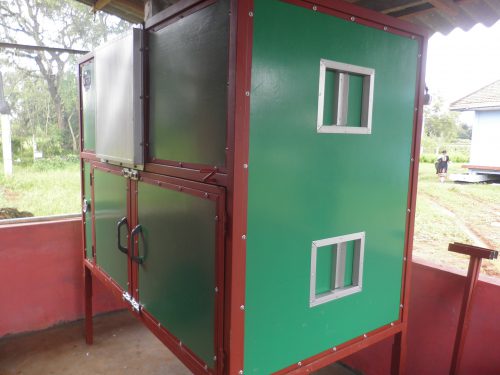
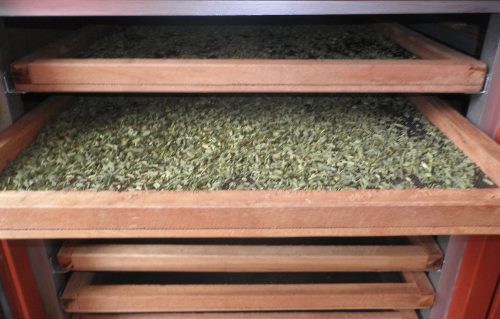
To guide them, six facilitators, supervised by RRI, supply seeds and ensure proper training and organisation. While living in the villages, these facilitators help when planting begins, teach environmentally-friendly and highly productive growing techniques, provide individual support on an almost daily basis, etc.
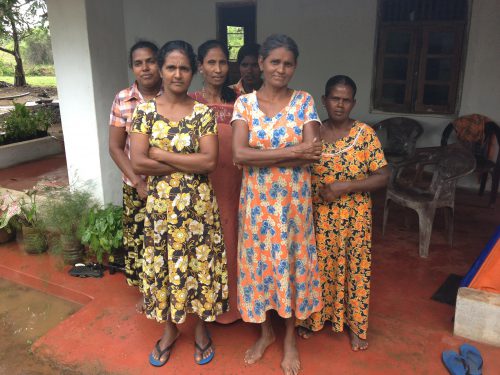
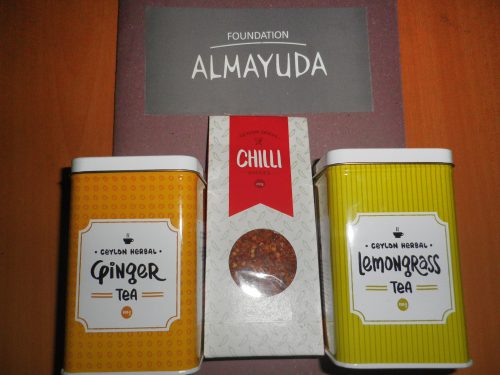
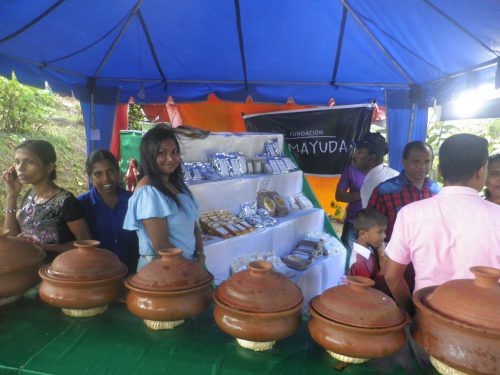
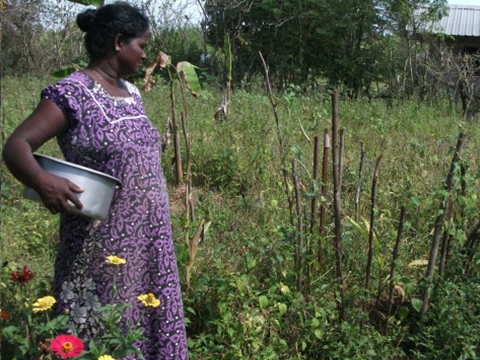
They also regularly bring together the women involved in the project for training workshops on issues that meet their needs, for example, on drawing up a household budget.
The RRI has set up small co-operative shops, providing an outlet for surpluses, thereby generating additional income. To ensure that produce is available for sale all year or virtually all year round, the programme encourages and supports the growing of ginger, turmeric, lemon grass and medicinal herbs, somewhat unconventional produce that the women intersperse in their usual food production.
Water is crucial to ensuring a harvest and Sri Lanka is a country in which periods of drought follow times of flooding. In order to regulate access to satisfactory water, the ALMAYUDA/RRI programme had to quickly set about restoring wells, which had not always been maintained and were on occasions contaminated with pesticides or other substances.
An initial phase of works has already made it possible to bring 50 wells back into use, a significant result but one which calls for ongoing upkeep if it is to be lasting. The programme, therefore, envisages continuing this action, which is necessary for irrigating gardens and for families’ consumption.
RRI initiatives, among them those supported by the ALMAYUDA FOUNDATION, work towards attaining the goal of self-sufficiency and were awarded a prize at the World’s Fair in Milan within the framework of a European programme entitled “Sri Lanka small farmer’s resilience”.
Photos DR
Useful Link : www.rainforestrescuesrilanka.org



